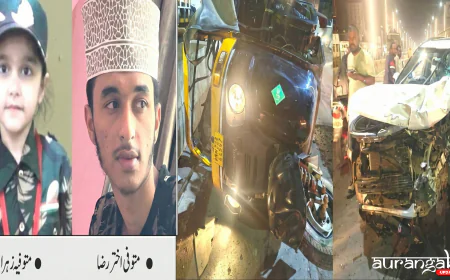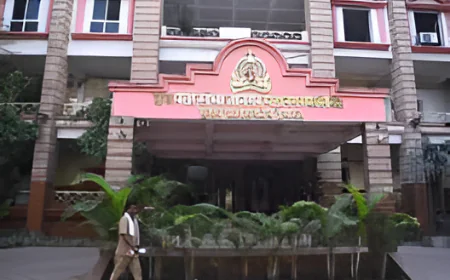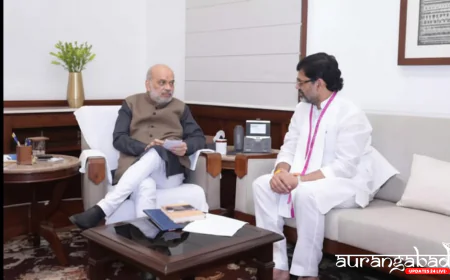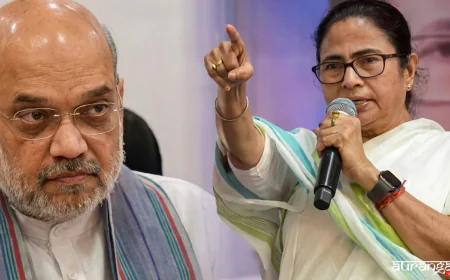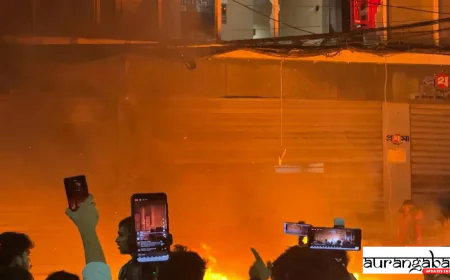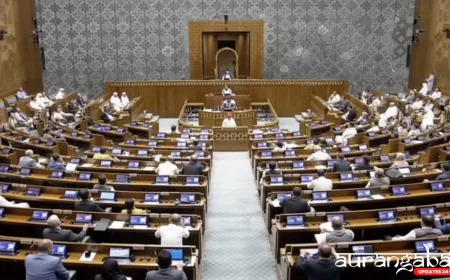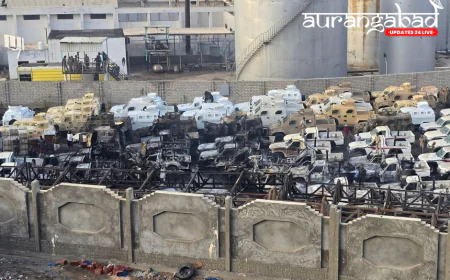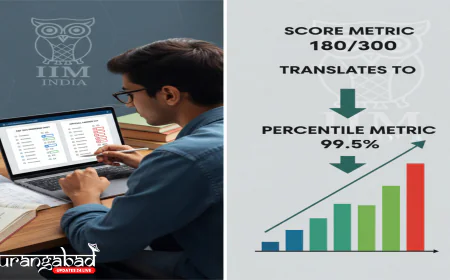MP Govt Plans Major Urban Makeover: Slum Control & Affordable Housing Push
Madhya Pradesh Chief Minister Mohan Yadav directs a comprehensive plan to curb slum expansion and boost affordable housing in urban areas. Learn about key initiatives, including a crackdown on illegal constructions, forest development, and new livelihood schemes, aiming for sustainable urban development and improved citizen welfare in MP.
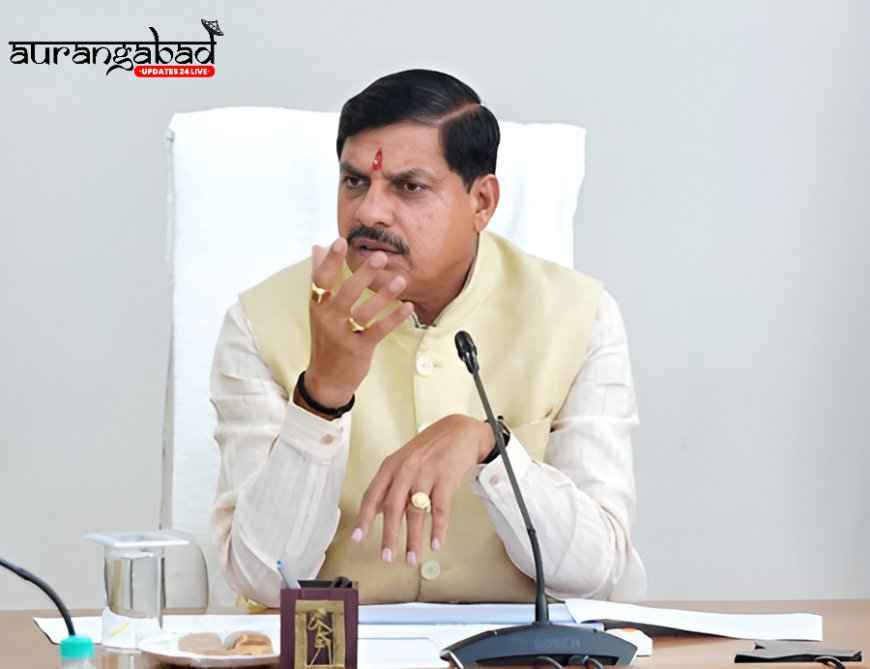
Chhatrapati Sambhaji Nagar, Maharashtra: In a decisive move to address the multifaceted challenges of rapid urbanization, the Madhya Pradesh government has announced an ambitious plan aimed at controlling the unchecked expansion of slums and fostering planned, sustainable urban development. On Thursday, July 3, Chief Minister Mohan Yadav issued explicit directives to prepare a robust action plan for the creation of affordable and convenient housing solutions across the state's urban centers. This comprehensive strategy extends beyond housing, encompassing initiatives for environmental improvement, infrastructure modernization, and livelihood generation, signaling a holistic approach to urban governance.
Combating Unplanned Growth: The Imperative for Slum Control
Slum expansion remains one of the most pressing issues for urban agglomerations across India, and Madhya Pradesh is no exception. Unplanned and unregulated growth of informal settlements often leads to a host of problems including overcrowding, inadequate sanitation, lack of basic amenities like clean water and electricity, compromised public health, and increased crime rates. These issues not only diminish the quality of life for slum dwellers but also exert immense pressure on urban infrastructure and resources, hindering overall city development.
Chief Minister Yadav's directive to actively control slum expansion underscores a recognition of these challenges. The government's vision is to transition from reactive measures to proactive urban planning, ensuring that future growth is inclusive, organized, and provides dignified living conditions for all citizens. This move is crucial for the long-term sustainability and aesthetic appeal of Madhya Pradesh's burgeoning cities.
Key Directives for a Transformed Urban Landscape
Chief Minister Mohan Yadav's series of instructions outline a multi-pronged approach to urban development:
-
Affordable and Convenient Housing: The core of the plan involves preparing an action blueprint for developing accessible and user-friendly housing. This aims to meet the growing demand for housing in urban areas while ensuring affordability, thereby providing an alternative to informal settlements.
-
Crackdown on Illegal Constructions: A significant step towards regulated urban growth is the directive for a comprehensive survey of illegal constructions, particularly those encroaching upon environmentally sensitive zones. The Chief Minister specifically pointed to the areas around Bhopal's iconic Upper Lake, instructing a focused campaign for strict action against such unauthorized structures. This move is vital for preserving natural ecosystems and ensuring planned urban expansion.
-
Involving National-Level Builders: To accelerate and enhance the quality of urban colony development, CM Yadav suggested actively involving reputed national-level builders and colonizers. Their expertise, resources, and scale can bring professionalism and efficiency to large-scale housing projects, ensuring timely delivery and modern amenities.
-
Modernization of Fire Services: Recognizing the crucial role of emergency services in urban safety, the Chief Minister stressed the immediate modernization of fire services. This includes upgrading equipment, training personnel, and improving response times for both urban and industrial areas, thereby bolstering public safety infrastructure.
-
Environmental Improvement through Green Spaces: Promoting green infrastructure is a key focus. CM Yadav emphasized the development of parks and the promotion of tree plantations in all new housing projects. This initiative aims to improve air quality, enhance urban aesthetics, combat the urban heat island effect, and provide recreational spaces for residents.
-
Expediting Pradhan Mantri Awas Yojana Allotments: To ensure that housing benefits reach the intended beneficiaries without undue delay, the Chief Minister directed that houses constructed under the Pradhan Mantri Awas Yojana (Urban) and other similar schemes be allotted as soon as ownership formalities are completed. This will help reduce housing backlogs and provide timely shelter to eligible families.
-
Developing City Forests (Nagar Vans): For maintaining a clean and healthy urban environment, a strategic initiative involves identifying reserved land parcels within cities and systematically developing them into 'City Forests' (Nagar Vans). Crucially, the plan emphasizes assigning clear maintenance responsibilities for these green lungs, ensuring their long-term upkeep and benefit to urban ecosystems.
-
Expanding Deendayal Rasoi Yojana: The Chief Minister also highlighted the importance of social welfare schemes. He stressed expanding the Deendayal Rasoi Yojana, which provides affordable meals, particularly in religious areas. This expansion will be supported through collaborations between the government, various voluntary organizations, and private donors, fostering community participation in social welfare.
-
Promoting Urban Self-Help Groups for Livelihoods: In an effort to empower urban communities and generate local employment, CM Yadav proposed forming self-help groups (SHGs) in urban areas. These SHGs would be encouraged to set up modern laundry services, for which the government would arrange necessary financial support and suitable operational space. This initiative aims to provide sustainable livelihood opportunities and enhance local services.
Boosting Intra-City Rail Connectivity: The 'Namo Train' Vision
Beyond the immediate urban development plans, Chief Minister Yadav also revealed his intention to discuss with Union Railway Minister Ashwini Vaishnaw the possibility of expanding intra-city rail connectivity within Madhya Pradesh. The Chief Minister seeks support for utilizing the 'Namo Train' service, a concept aimed at enhancing urban transit networks, to improve local commuting efficiency and reduce road congestion in MP's cities. This strategic move could significantly transform urban mobility and further support planned development by integrating transport infrastructure.
A Holistic Vision for Sustainable Urbanization
Madhya Pradesh's new urban development strategy, spearheaded by Chief Minister Mohan Yadav, represents a holistic and forward-looking approach. By combining slum control with the provision of affordable housing, green infrastructure, modernized services, and livelihood generation initiatives, the government aims to create cities that are not only livable but also sustainable and economically vibrant. The emphasis on planned growth, strict enforcement against illegal constructions, and leveraging partnerships with national builders reflects a serious commitment to overcoming historical challenges.
The success of these directives will hinge on effective implementation, inter-departmental coordination, and consistent political will. If successfully executed, this comprehensive plan has the potential to transform Madhya Pradesh's urban centers into models of planned growth, improved citizen welfare, and environmental responsibility, setting a new benchmark for sustainable urbanization in India. The coming months will be critical as the detailed action plans are prepared and ground-level implementation begins, promising a brighter future for the urban populace of Madhya Pradesh.





